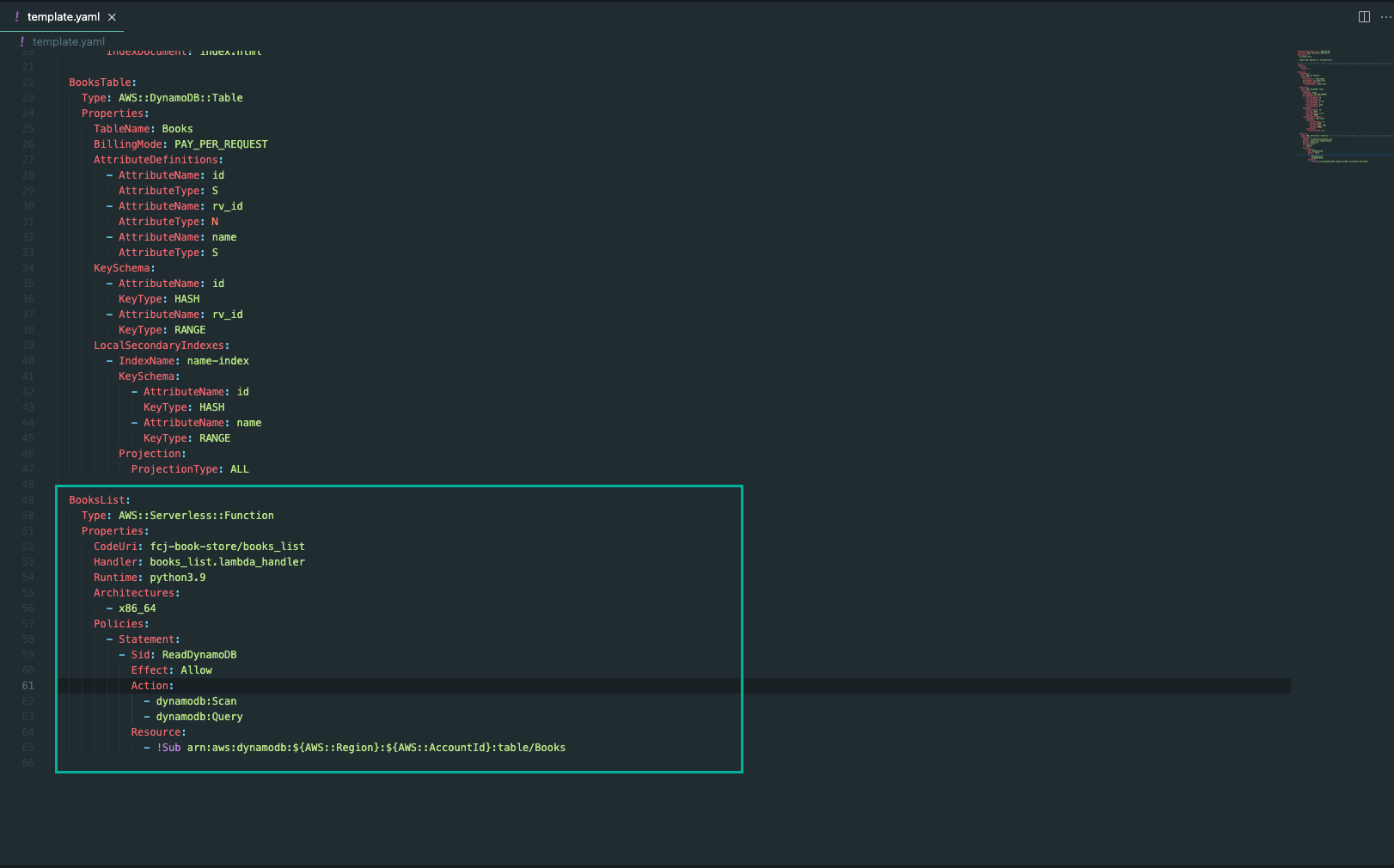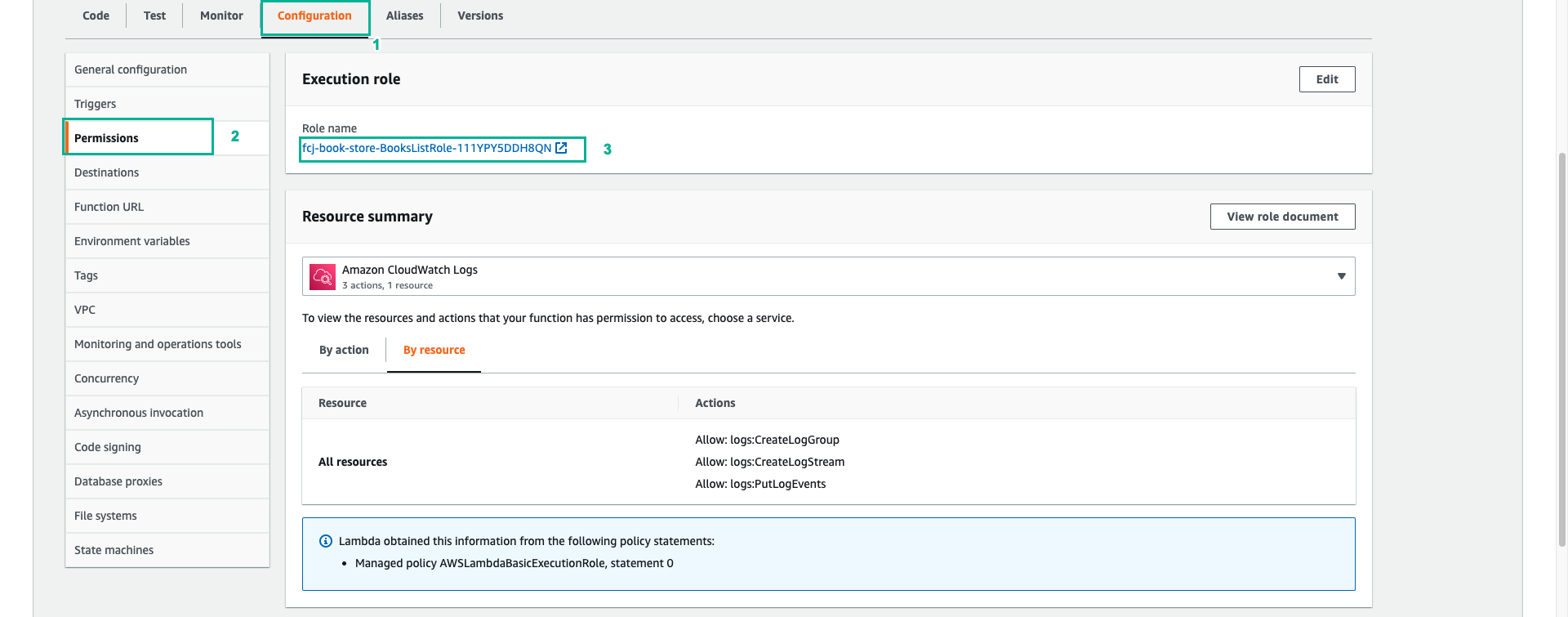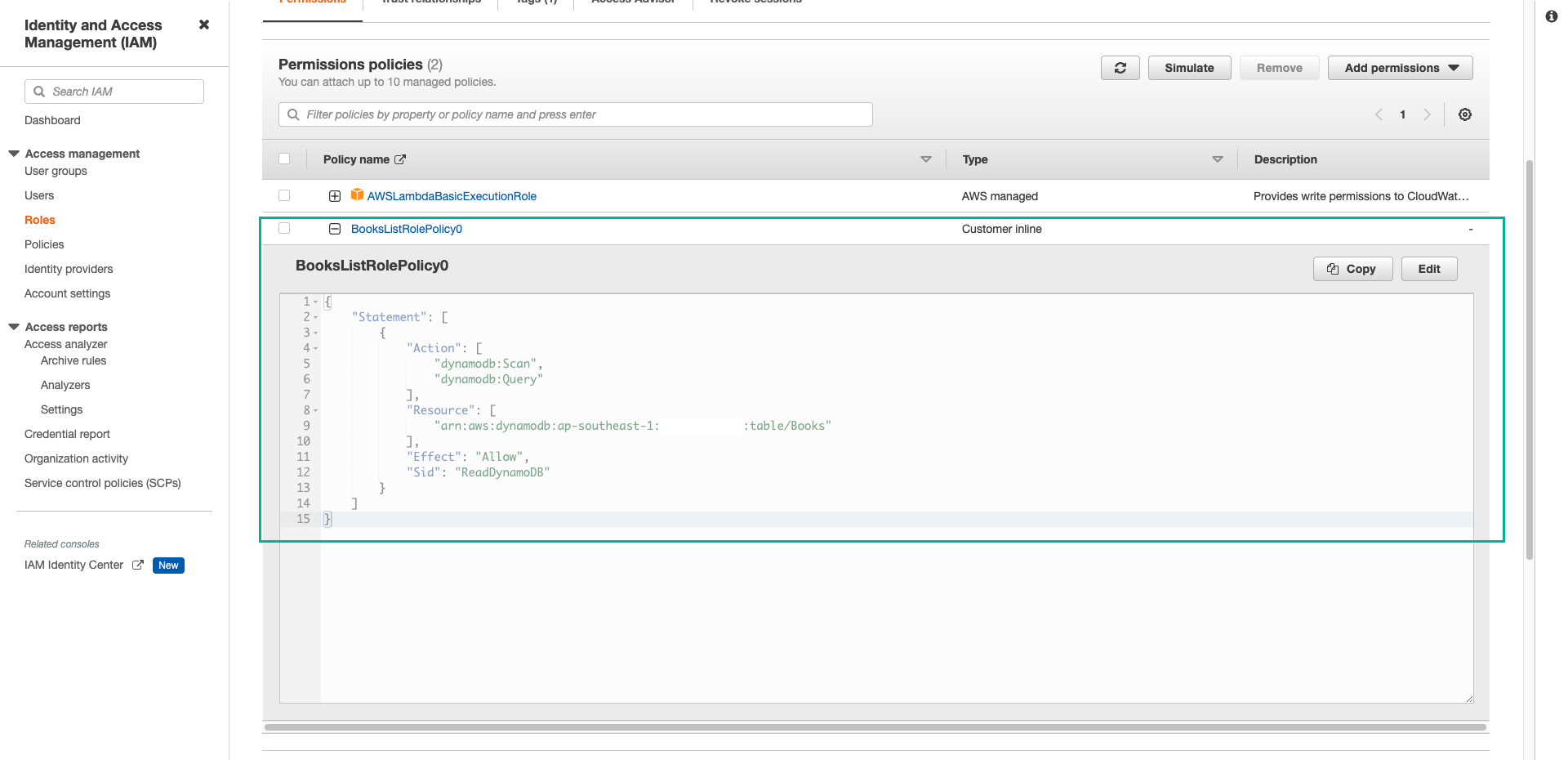Listing Lambda function
We will create a Lambda function that reads all the data in the DynamoDB table:
- Open template.yaml file in fcj-book-store folder
- Add the following script at the end of the file
BooksList:
Type: AWS::Serverless::Function
Properties:
CodeUri: fcj-book-store/books_list
Handler: books_list.lambda_handler
Runtime: python3.9
FunctionName: books_list
Architectures:
- x86_64
Policies:
- Statement:
- Sid: ReadDynamoDB
Effect: Allow
Action:
- dynamodb:Scan
- dynamodb:Query
Resource:
- !Sub arn:aws:dynamodb:${AWS::Region}:${AWS::AccountId}:table/Books

- The directory structure is as follows:
fcj-book-store
├── fcj-book-store
│ ├── books_list
│ └── books_list.py
└── template.yaml
- Create fcj-book-store/books_list folder in fcj-book-store folder
- Create books_list.py file and copy the below code block to it
import json
import boto3
from decimal import *
from boto3.dynamodb.types import TypeDeserializer
client = boto3.client('dynamodb')
serializer = TypeDeserializer()
class DecimalEncoder(json.JSONEncoder):
def default(self, obj):
if isinstance(obj, Decimal):
return str(obj)
return json.JSONEncoder.default(self, obj)
def deserialize(data):
if isinstance(data, list):
return [deserialize(v) for v in data]
if isinstance(data, dict):
try:
return serializer.deserialize(data)
except TypeError:
return {k: deserialize(v) for k, v in data.items()}
else:
return data
def lambda_handler(event, context):
data_books = client.scan(
TableName='Books',
IndexName='name-index'
)
format_data_books = deserialize(data_books["Items"])
for book in format_data_books:
data_comment = client.query(
TableName="Books",
KeyConditionExpression="id = :id AND rv_id > :rv_id",
ExpressionAttributeValues={
":id": {"S": book['id']},
":rv_id": {"N": "0"}
}
)
format_data_comment = deserialize(data_comment['Items'])
print(data_comment['Items'])
book["comments"] = format_data_comment
print (format_data_books)
return {
"statusCode": 200,
"headers": {
"Content-Type": "application/json",
"Access-Control-Allow-Origin": "*",
"Access-Control-Allow-Methods": "GET,PUT,POST,DELETE, OPTIONS",
"Access-Control-Allow-Headers": "Access-Control-Allow-Headers, Origin,Accept, X-Requested-With, Content-Type, Access-Control-Request-Method,X-Access-Token,XKey,Authorization"
},
"body": json.dumps(format_data_books, cls=DecimalEncoder)
}
- Run the following command to deploy SAM
sam build
sam deploy
- Open AWS Lambda console

- Click books_list function created

- Click Configuration tab
- Select Permissions on the left menu
- Click on the role that the function is executing

- Expand the policy, see the permissions granted to the function
